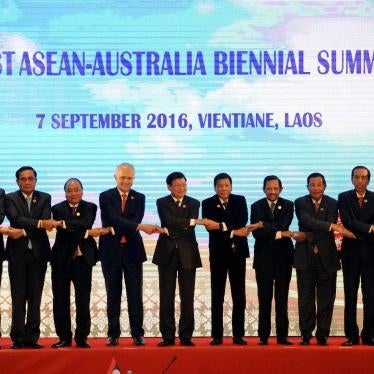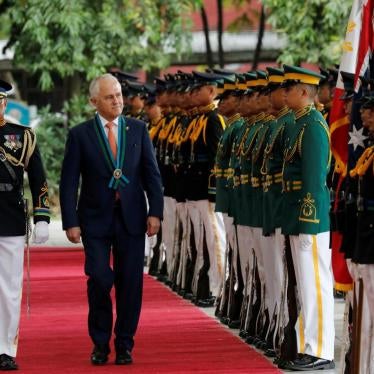(New York) – The government of Malaysia’s proposed law criminalizing “fake news” is a frontal attack on free expression and should be withdrawn, Human Rights Watch said today.
A clear target of the legislation is discussion in Malaysia and abroad of the corruption scandal involving Prime Minister Najib Razak and the country’s 1MDB fund. Najib has been accused of embezzling hundreds of millions of dollars from 1Malaysia Development Berhad (1MDB). On March 21, 2018, the deputy communications minister stated that any news about 1MDB that has not been verified by the government is “fake news” and would be subject to government action.
“Malaysia’s ‘fake news’ bill is a blatant attempt by the government to prevent any and all news that it doesn’t like, whether about corruption or elections,” said Brad Adams, Asia director. “The proposed law uses draconian penalties and broad language in an audacious and unprecedented effort to control discussion of Malaysia worldwide.”
The Anti-Fake News 2018 bill, which was introduced in Parliament on March 26, carries up to 10 years in prison for knowingly creating, distributing, or publishing “fake news,” defined to include “news, information, data and reports” that are “wholly or partly false.” The law would also apply to individuals or organizations operating outside of the country if the “fake news” concerns Malaysia or affects Malaysian citizens.
The bill greatly expands the already broad set of laws in Malaysia, such as for criminal defamation, that penalize peaceful speech and create a climate of self-censorship and fear. The bill does not establish standards for determining what is false and does not distinguish between malicious falsehoods and simple errors on the part of a journalist or social media commentator.
The legislation would also require individuals, corporations, and internet platforms to “immediately” remove content if they have “reasonable grounds to believe it contains fake news.” Failure to do so could result in a criminal fine of up to 100,000 Malaysian ringgit (US$26,000).The bill places the burden on companies that host third-party content to make difficult determinations of whether that content is true under conditions that encourage suppression of lawful speech. Faced with short review periods and the risk of steep fines, companies will have little incentive to err on the side of free expression.
The bill also fails to provide either judicial oversight or a judicial remedy should a cautious corporate decision interfere with a person’s right to speak or access information.
Under the bill, anyone who claims to have been affected by “fake news” can apply to a court, with no notice to those who wrote or posted the material, for an order to remove the content. Notice of the order can be served electronically, including by sending it to an individual’s social media account. Failure to remove the material within the specified time could result in a criminal fine of 100,000 ringgit.
The public prosecutor may apply to the court for an order directing a police officer or other authorized officer to remove the content. While those affected can appeal, they would not be allowed to submit an application if the news is “prejudicial or likely to be prejudicial to public order or national security.”
On March 28 the Malaysian parliament approved controversial new constituency boundaries for upcoming national elections. Activists fear the fake news bill could be used against critics of gerrymandering or other elements of the electoral process.
“The Malaysian government has no monopoly on the truth, but it’s attempting to be the arbiter of what can and can’t be said and written,” Adams said. “The government should withdraw the bill immediately.”









